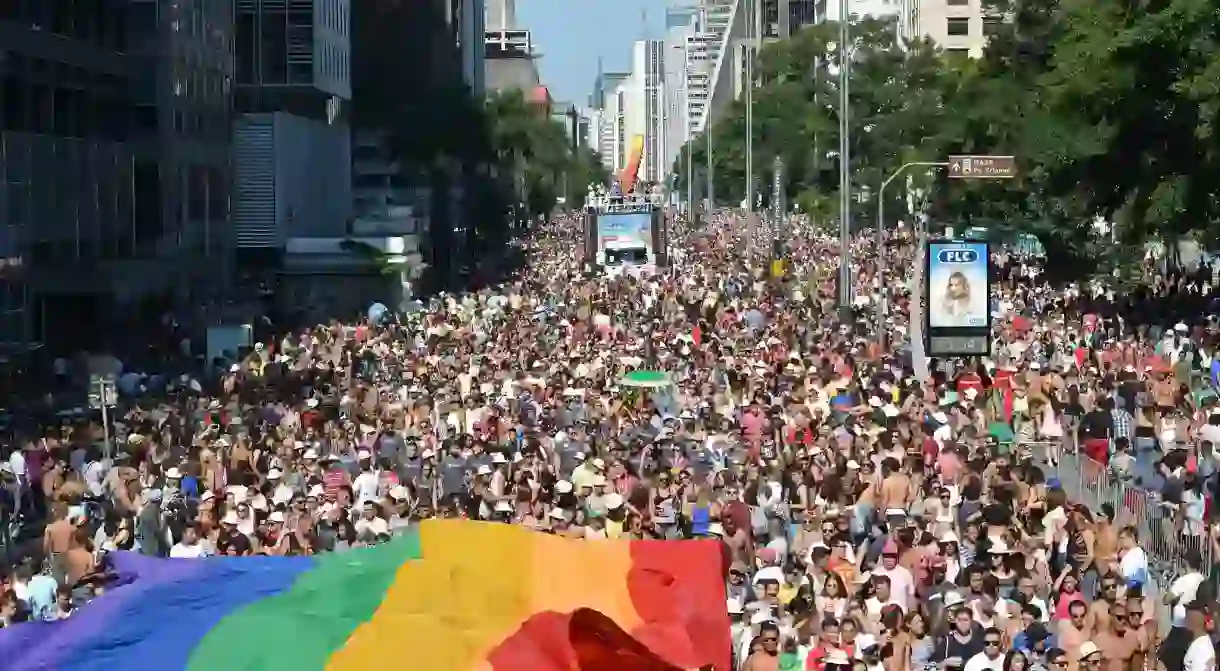Brazil Legalizes "Gay Cure" Therapy—and Locals Are in an Uproar

On September 19, 2017, federal judge Justice Waldemar Cláudio de Carvalho amended a 1999 resolution of the National Psychology Council (CFP), which prohibited controversial ‘sexual reversal’ treatments in Brazil. Now, the CFP will be unable to prevent or punish any medical professional from treating homosexuality as a curable disease. The decision, result of a civil lawsuit brought by an Evangelical ex-psychologist, has caused significant backlash from the Brazilian population, particularly on social media.
The hashtag #HomofobiaÉDoença (Homophobia Is a Disease) ranked among the world’s top trending topics, while Brazilian celebrities registered their disgust at Monday’s ruling.
Likewise, Ivete Sangalo, one of the country’s most famous singers, declared that “the sick ones are those who believe in this nonsense [sexual reversal treatment]. …We’re trying to be strong, be optimistic [and now the government] turns around and says homosexuality is a disease.”
Likewise, Brazilian pop star Anitta declared her outrage on her Instagram, stating, “Brazil is tearing itself apart, and the authorities are worried about who we want to have relationships with. This needs to stop.”
http://instagram.com/p/BZM8GkHFhco/?hl=en&taken-by=anitta
While the ruling does not overtly reclassify homosexuality as a disease (the World Health Organization declassified it as a mental disorder in 1990) it does mean Brazilian psychologists treating it as such will be free to do so and avoid punishment.
According to Justice Carvalho, by prohibiting these so called “sexual reversal” treatments, the 1999 CFP resolution “affects the country’s scientific freedom” and consequently “impairs the investigation into a very important aspect of psychology—human sexuality.”
Meanwhile, in a press release, the CFP declared that the ruling “opens a dangerous precedent” and represents a major step back in LGBT civil rights and acceptance, underlining that the CFP will not be used as “a tool to promote suffering, prejudice, intolerance and exclusion.”

This decision comes at a time when Brazil’s current moment is one of rising conservatism and reactionary politics. Earlier in September, a Porto Alegre art exhibition was cancelled after protests from far-right groups, which claimed the exhibition (featuring themes of LGBT rights and sexual diversity) was blasphemous and advocated pedophilia and bestiality.
Meanwhile, with the 2018 presidential election on the horizon, far-right candidate Jair Bolsonaro—known for his inflammatory remarks and regularly accused of racist, sexist, and homophobic views—is polling highly.
It is important to remember that this ruling is a temporary injunction, meaning that the 1999 resolution is far from definitively repealed. The CFP is preparing its appeal, and mass protests have been scheduled across the country.













